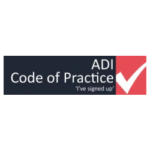Driving Examiner
Everything you need to know in becoming a driving examiner.
We are in a unique position as we have an ex DVSA Examiner who used to deliver training in DVSA, carry out recruitment assessments such as interviews, exercises, recruitment drives, quality control examiners during there probation and once established routine quality checks.
Your in safe hands, contact our team for any training needs or questions you may have.
KWIK PASS Driver Training
- 75a Crawley Road, Luton, Bedfordshire, LU1 1HX
- 079 666 777 77
- info@kwikpass.org




